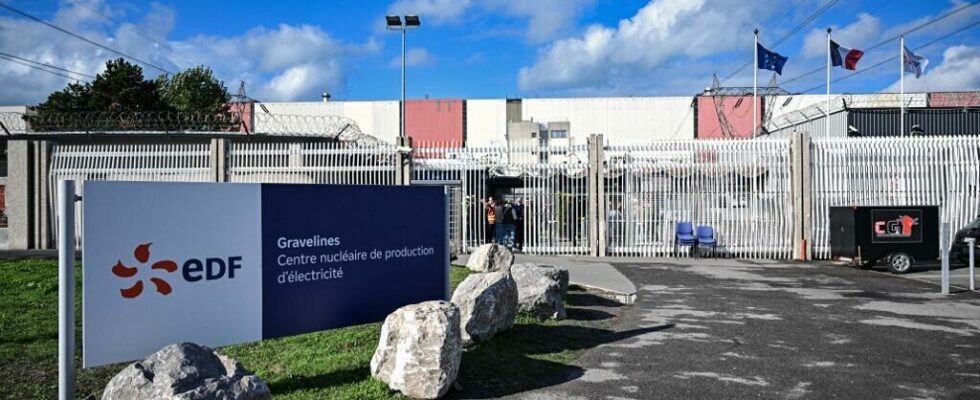In a report published this Thursday, October 3, the NGO Greenpeace accuses the French nuclear industry of not taking into account the risk of marine submersion as part of the EPR2 reactor construction project in Gravelines.
3 mins
With its six 900 MW reactors, the Gravelines power plant, in the north of the Franceis already the most powerful in Western Europe. It is planned that this site, located in the Aa delta on a polder zone, will host two EPR2, power stationsnew generation and more powerful – in this case1600 MW each. The start of operation of these pressurized water reactors which are part of the nuclear revival program desired by Emmanuel Macron could take place by 2040. For the moment, the project has been the subject of public debate since mid -september.
The two reactors must be built on a platform of11 meters high. Despite this height, “ the entire power plant site may find itself temporarily – at the time of high tides and under the conditions of a 100-year storm surge – below sea level » by 2100, warns the NGO Greenpeace in a report published this Friday. A calculation that EDF disputes. “ The height of the platform chosen for the Gravelines EPR2 reactors allows protection against “extreme” flooding, taking into account the effects of the IPCC scenarios among the most penalizing with regard to sea level rise. », Explains the French electrician in a written response to RFI’s interview request.
Other plants concerned
But Greenpeace criticizes a “ obsolete consideration of global warming “. “ We cannot think as if the situation compared to today would remain stable and the sea level would just rise a little. “,comments Pauline Boyer, energy transition campaign manager for Greenpeace. The NGO therefore made its projection based on the IPCC’s most pessimistic scenario. This scenario considers the hypothesis where humanity does not take measures to reduce its greenhouse gas emissions, a scenario whose probability of happening by 2100 remains low according to climate experts mandated by the UN.
“ What is important today is to take protective measures in the light of our current scientific knowledge by adding margins », Estimates Ludovic Dupin, information director of the French Nuclear Energy Company. Leave « then, if they are not suitable, to upgrade these protections on a very regular basis », according to ten-yearly inspections. But in the eyes of Pauline Boyer, a study on the risks taking into account climate change “ should govern the choice of site » and be carried out before public debates.
If the report published on October 3 is entirely devoted to Gravelines, global warming could present other risks to nuclear power plants.Greenpeace is also concerned about the dangers linked to heat and the increase in extreme weather events such as storms. Pauline Boyer also questions the potential “ a conflict of use » river water to cool the reactors. Conversely, Ludovic Dupin highlights the other side of the coin: the atom produces carbon-free energy.
